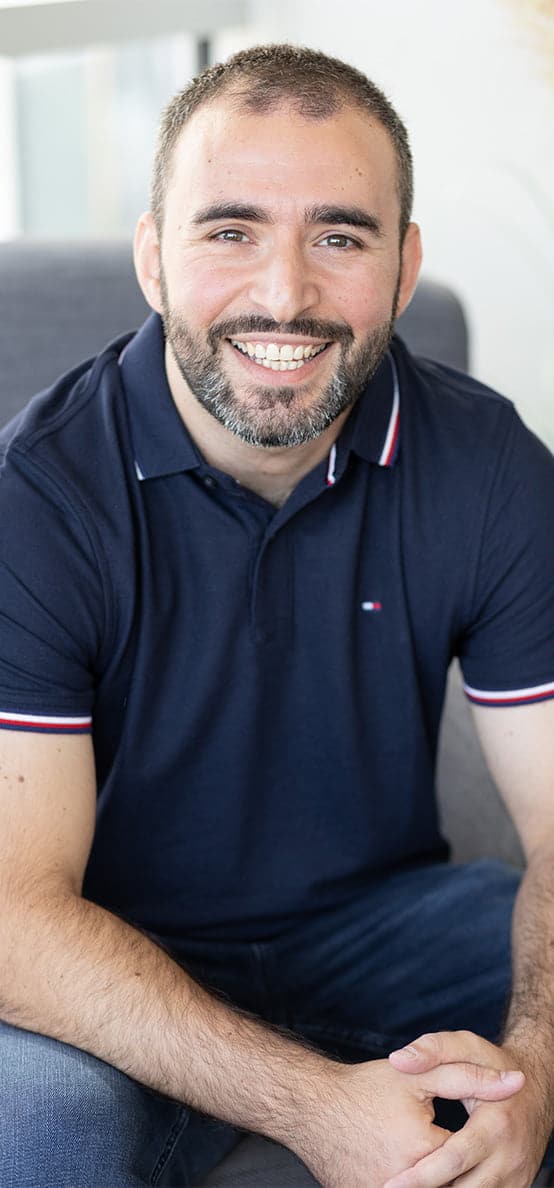Immediate Availability - Open 7 days a week - day, evening and weekend appointments
Immediate Availability - Open 7 days a week - day, evening and weekend appointments

Hi, I'm Daniele! I work with individuals teens (14+), adults, seniors and couples.
I understand that seeking support can be a big step, and I aim to create a safe, welcoming space where you feel genuinely seen and heard. I bring authenticity, compassion, and a calm, kind-hearted presence into each session, drawing from my own life experiences and a variety of therapeutic approaches to meet your unique needs. I’m not afraid to engage directly with what matters most to you, and I work from a culturally and spiritually sensitive lens. I see challenges not just as obstacles, but as opportunities to connect with your inner strengths and move toward a more meaningful life.
“Inner joy and true happiness are found in enduring and overcoming adversity.” – Daisaku Ikeda
If you’re looking for a warm, empathetic, and relational therapist, I’d love to connect!
In my experience, navigating difficult emotions can be incredibly challenging. On the path to healing, therapy often brings up painful or uncomfortable feelings like anger, sadness, guilt, or shame. It’s natural to want to suppress or avoid these emotions, but true healing often requires us to face them, learn from them, and grow through the experience.
In therapy, I can help you develop healthy ways of coping with these emotions. I won’t promise it will always feel good—learning new skills takes time, practice, and patience, and it’s normal to stumble along the way. But I will be there to support and gently encourage you. Together, we’ll create a safe, accepting space to explore with curiosity and work through life’s challenges.
I draw from a variety of psychological treatment methods, tailoring therapy to fit each client’s unique situation.
By integrating these methods, we can work together to create a personalized approach that supports your growth and well-being.
Couples therapy offers a valuable opportunity to uncover and transform patterns, behaviors, or beliefs that may be contributing to relationship challenges. While change requires effort and dedication from both partners, it also brings the potential for growth, deeper connection, and renewed joy in your relationship.
Through this process, you might find yourselves navigating compromises, embracing differences, or letting go of habits and expectations that no longer align with your shared goals. It's natural to encounter resistance or obstacles, whether from within, your partner, or external circumstances.
My role is to walk alongside you, providing support and guidance as you work through these challenges. Together, we’ll focus on building tools and skills that foster greater intimacy, connection, and mutual understanding, helping you move toward the relationship you both desire.
“It is not difficult to find love, but to keep it alive over time.”
Sustaining a meaningful partnership requires navigating challenges while nurturing connection, and I find Acceptance and Commitment Therapy (ACT) to be a powerful tool in this process. ACT helps couples build psychological flexibility, allowing them to reconnect with their shared identity, align with their values, and make space for emotions like pain, anger, shame, or fear that may hinder growth. Its mindfulness component encourages staying present in the moment, reducing the impact of negative thoughts and rumination.
I also incorporate the Gottman Method, which views conflict as an inevitable aspect of relationships. When managed constructively, conflict can even predict a relationship’s long-term success. This approach offers a structured system for navigating disagreements while maintaining positive feelings and mutual respect.
The Gottman Method emphasizes three key practices:
These practices help couples strengthen their bond and create a resilient, lasting partnership. Together, we can explore these methods to support a thriving and enduring relationship.
"*" indicates required fields